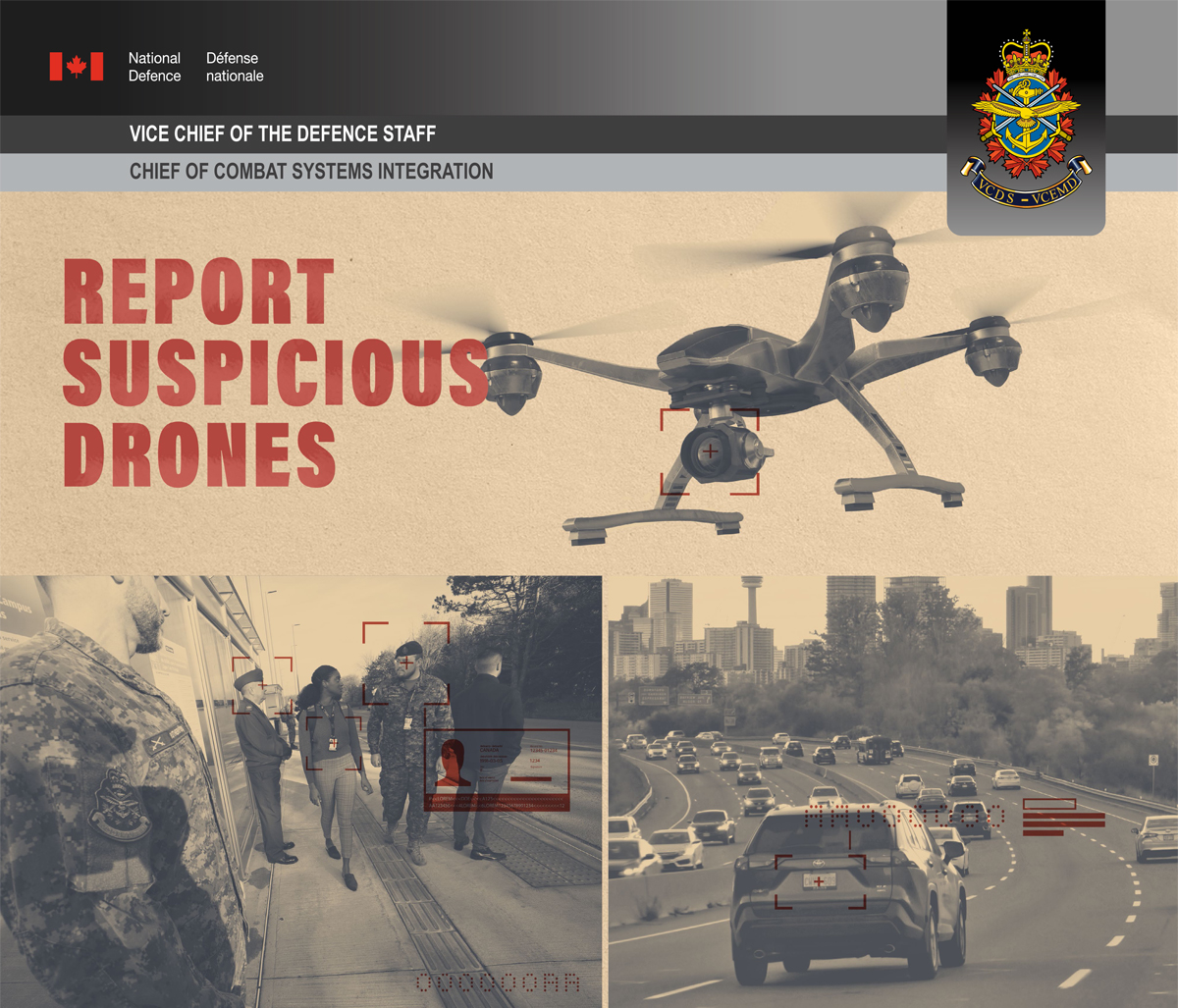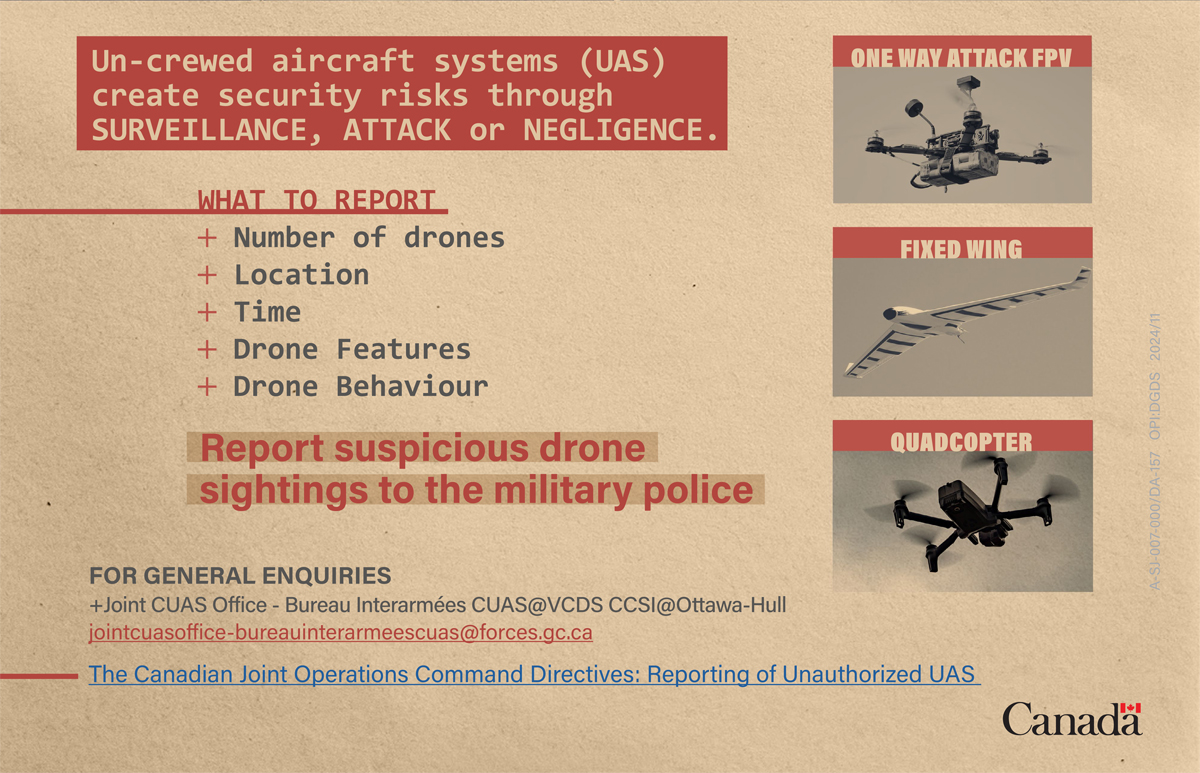Security Awareness Week
By Lookout on Feb 11, 2025 with Comments 0
Sgt Paul Hare
Military Police Unit Esquimalt
—
Stay Sharp, Stay Safe: Security Every Day
As a new year is upon us, we once again find ourselves acknowledging Security Awareness Week from Feb. 10-14. It is during this time of year where we reinforce the necessity of security to the Defence community. Adherence and implementation of security policies and directives are essential to every security program.
The theme of this year’s Security Awareness Week is Stay Sharp, Stay Safe: Security Every Day. As a police officer, the first thing I instinctively think of while I contemplate this year’s theme is complacency. Within the police profession, it is dangerous to approach a routine activity, such as a traffic stop, with complacency as this interaction can become far from routine at a moment’s notice. The same is true for an organization’s security program. When you settle into a repetitive day-to-day routine, it common to take short cuts or deviations for the sake of convenience. Doing so negates the strength of the established security program and creates an exploitable vulnerability that could cause possible safety or security issues.
The question then remains; how do we remain vigilant and conduct ourselves in a manner that reinforces and strengthens the security policies and procedures, as opposed to hindering them.
Security Access Credentials
We are all aware of the requirement to present and prominently display authorized security passes while occupying a Security Zone or other zones of heightened scrutiny to prevent situations of unauthorized access. However, it is as equally important to ensure that those same security badges are concealed and kept out of sight while being in Reception or Public Zone. This prevents the public and unauthorized parties from viewing or potentially capturing imagery of proprietary Canadian Forces security credentials, and the personnel authorized to enter them.
Physical Security Barriers
Once you are within a restricted area, the physical security barriers may still not be sufficient in preventing unauthorized individuals from entering. On occasion, there have been instances where additional security doors within the confines of a zone have been wedged or propped open for the sake of convenience. Redundancy is often purposely incorporated within a security program for safety, slowing and denying penetration into a particular area, or enabling sufficient response time for security personnel in the event of an incursion. Intentionally removing these barriers negates this layered approach to protection. These security barriers should never be bypassed or circumvented for the sake of convenience.
Situational Awareness
Staying sharp also includes always being aware of your surroundings. Office work can often entail long hours. To remain productive and energized, breaks are essential to a healthy lifestyle. During these breaks, we often run into colleagues. It is important to be mindful when you are in a publicly accessible area. Regardless of the content or context of your conversation, information can always be valuable to someone. Be aware of your environment and refrain from having workplace conversations while outside the office or in the presence of unintended individuals.
Being mindful and implementing these simple security measures and practices will enable our day-to-day behaviours to remain security focused. Stay sharp to prevent any unintended security incidents from arising.
Five minutes in the Hot Seat: Reverse Interrogation
Warrant Officer Graham Steel sat down with Sgt. Paul Hare to answer your burning questions regarding base security:
Q: What security practices are in place or have been implemented by Military Police Unit Esquimalt (MPU(E)) following the changes at Naden Gates?
MPU(E) has increased our presence and patrols throughout Naden, including random and periodic ID checks at Naden Gate throughout the day. Visitors and employees are still subject to Defence Controlled Access Area Regulations (DCAARs) and Inspection and Search Defence Regulations (ISDRs) while on Defence establishments. We ask that military personnel be more vigilant and observant while at work and challenge or report any unusual activity they see. Unit level security practices and policies are still in place, and we will continue to protect, and secure the People, Information, and Assets on base.
Q: With the current increase in accessibility and popularity in arial drone ownership and use, what is the official stance of their use on Defence property?
This is becoming an increasing focus and concern for the CAF. The official policy states that any unscheduled and non-operational use of an unmanned aerial vehicle (UAV) or drone is prohibited within the geographical property of CFB Esquimalt.
Q: What actions should someone take should they witness or observe drone use in and around CFB Esquimalt property?
The most important thing would be to not delay in reporting this incident to MPU(E) as it will afford the greatest chance or probability of locating the operator and taking action. Providing valuable information including the area of the base in which it was observed, way it was being used, direction of travel, and description of drone will help. To prevent unnecessary reporting, members should regularly refer to the MARPAC Noticeboard and splash page as all events of upcoming Operational UAV use is displayed and populated on there with the relevant locations and timings when they will be deployed in Operational activities.
Q: What are some best workplace security practices?
Primarily, familiarize yourself with your Unit Security Orders which will provide specific security information relevant to your day-to-day work life and environment. Become familiar with the nearest emergency exits and multiple ways to evacuate your office space. Be aware of your unit’s specific muster area in the event of an evacuation. Be mindful and aware of the nearest fire alarm pull stations, and any fire extinguishers placed throughout your unit facility or office space. Should there be a need to shelter in place due to a potentially hazardous situation, be cognizant of the nearest enclosed space you can go and adequately secure to protect yourself.
Q: Is my approved Security Clearance (Reliability/Secret/Top Secret) indefinite or do they expire?
The highest level of Security Clearance that you receive are valid once issued, and they do not expire. Even though you have received a Security Clearance level, policy dictates that they need to be updated and renewed on a prescribed frequency. That rate of frequency varies depending on your level of clearance, with Secret having to be revised every ten years and a Top-Secret clearance needing to be re-assessed every five years. Outside of those mandated times, there is an onus on the member to inform their USS when there is a meaningful change in personal circumstances that have had an impact on your personal life. Examples of this would include divorce, significant financial hardship, and substance use.
Filed Under: News Release • Top Stories
About the Author:







